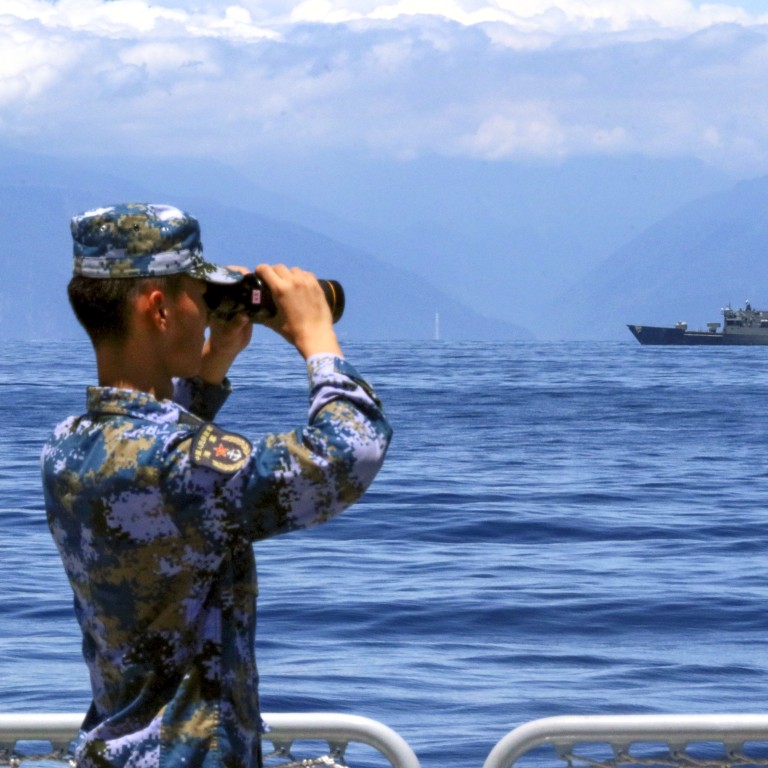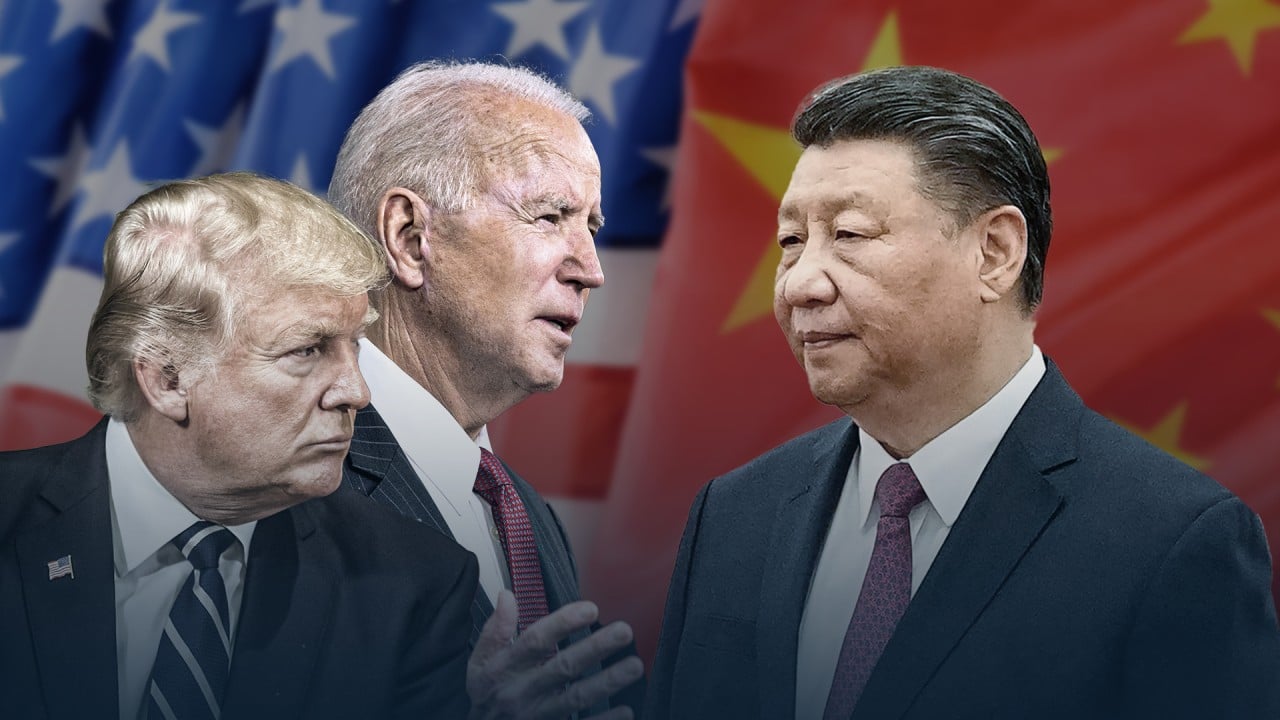
Military intervention in Taiwan and conflict with US among top worries for Chinese surveyed in security poll
- Some 2,661 mainland citizens polled by the Centre for International Security and Strategy at Tsinghua University on the outlook for international security
- Results show Japan is viewed almost as unfavourably as US and 80 per cent believe US and Western countries are ‘most accountable’ for Ukraine crisis
The centre published a public-opinion poll on the Chinese outlook on international security on Wednesday, in which 74.1 per cent of respondents said security threats against China from “confrontation and conflicts between China and the US” were high or somewhat high.
“It is worth our attention that people in China and the US have negative views about the other country,” institute director Da Wei said, noting that the views were deteriorating along with US-China relations.
The survey data could help policymakers to better assess public sentiment towards security and strike a balance with elites’ views while providing a more accurate reference for overseas observers, he said.
The other threats drawing high attention were “international forces’ intervention in Taiwan” and the global pandemic, which were both deemed by 72.4 per cent of respondents as high and somewhat high threats against China.
The research institute surveyed 2,661 mainland citizens in November 2022, a time when Covid-19 restrictions were still looming and the same month Chinese President Xi Jinping and US President Joe Biden met for the first time in Biden’s presidency, in hopes to repair fractured communications.
Along with an intensified Chinese military build-up in the region, there have been increasing fears of armed conflict in relation to Taiwan, which Beijing regards as a renegade province, to be brought under mainland control.
Most countries, including the US, do not recognise Taiwan as an independent state, although Washington opposes the use of force to change the status quo.
Da, the leading researcher, was surprised by finding that China’s public remained generally positive about international security changes, with more than half thinking the world would become safer in five years’ time.
“This has contrasted quite largely with my personal expectation … but higher educated respondents also showed less sense of security, which might imply that those accessing more information or overseas experience have more direct understanding of insecurity,” he said.
China, US exchange barbs at ‘candid trade talks’, vow to manage rising tensions
But attitudes towards the direction of US-China relations are more ambivalent. While about 45 per cent believed the situation would improve, about 30 per cent did not expect change. About 25 per cent said the relationship would deteriorate.
The online responses were collected randomly from population subgroups whose sex, age, region and census register (urban or rural) proportionally reflect the latest national census.
More than half the respondents said at the time the US had a “great” impact on China’s security, about triple the figure for Russia or Japan, the second and third countries reported by respondents to have the most impact on China.
The US is also the least favoured country among the respondents, with almost 60 per cent of Chinese surveyed describing it as “unfavourable”, contrasting with the most favoured country, Russia, of which about 8 per cent of respondents said was “unfavourable”.
Da said the result was “unsurprising” and echoed opinion polls in the US which show a worsening impression of China among Americans.
In the Chinese survey, 36 per cent thought the US-China tensions were mainly because of “US factors only”, in contrast with the slight 2.6 per cent who said the issues were caused by “China factors only”, with the rest believing the major factors were “conflicting interests between China and the US”, “different ideologies” and “lack of mutual trust”.
‘Pit of fire’: Chinese envoy’s remark to Japan over Taiwan policy slammed
Some 57.5 per cent of respondents described their impression of Japan as somewhat unfavourable or very unfavourable compared with 59.1 per cent giving the same negative impression of the US.
China and Japan historically have had a strained relationship, largely stemming from the Japanese occupation of World War II and territorial disputes over the Senkaku Islands, known in China as the Diaoyus. But Tokyo’s recent push for greater security cooperation with the US, as well as its increased military expenditure, have heightened Chinese concerns.
On the war in Ukraine, 80.1 per cent of Chinese respondents believed the US and Western countries were “most accountable”, followed by Ukraine (11.7 per cent), and Russia (8.2 per cent).



